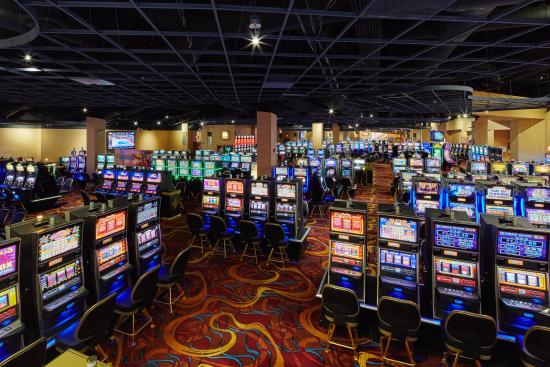
In the world of gambling, understanding the nuances of different casino games is important for any player looking to boost their play experience. Regardless of whether it’s the turn of a roulette wheel cylinder, the deal of gambling cards, or the clattering of slot machine reels, every activity has its unique charm and tactics. Yet, one key element that commonly goes ignored by recreational gamblers is the house edge. This statistic plays a crucial role in influencing how activities are designed and the long-term profitability for casinos.
The house edge is the numerical advantage that the establishment holds over the gamblers. This automatic edge ensures that while participants may experience wins, the house ultimately remains profitable over time. By comprehending how the house advantage operates in various gambling games, gamblers can make informed decisions, set practical expectations, and potentially even formulate superior tactics for their playing. Understanding this essential element is vital for anyone who wishes to enjoy the exhilaration of casino activities while reducing prospective setbacks.
What is House Edge?
The house edge is a critical concept that all player should understand when participating in gaming activities. It refers to the mathematical advantage that the house has over players. This benefit is built into the rules of the game and ensures that, over time, the house will make a profit. The house edge is typically expressed as a ratio, indicating the mean amount the casino expects to gain from each wager made by gamblers.
Different gaming options have varying house edges, which can significantly influence a player’s experience and wagering strategy. For instance, games like blackjack can have a minimal house edge when played with the best strategy, while games such as slots or keno often feature a higher house edge. Grasping these differences can help gamblers in making knowledgeable decisions about which games to play and how best to manage their funds effectively.
Gamblers often erroneously believe that chance alone decides the results of casino games; however, the house edge is a perpetual factor that shapes the overall odds. This means that, while players can experience temporary wins, the long-term outlook is that the house will ultimately succeed due to the house edge. By understanding this concept, gamblers can enter gaming activities with a better understanding of their possible risks and rewards.
How The House Advantage Affects Game Results
The house edge represents a crucial idea that affects the results of casino games. This concept represents the statistical benefit that the casino has over players, ensuring that the casino will keep a percentage of all wagers placed. This edge differs between various games and determines how much participants can expect to gain or lose in the long run. Understanding the house edge helps players formulate informed choices about which gaming options to play and how to approach their wagering tactics.
Various gambling activities exhibit varying levels of house edge, and this can significantly impact player experience and overall contentment. For instance, activities like 21 and certain poker variants can have a reduced house edge compared to slot machines, in which the edge is typically higher. Players who prefer strategy-driven games may find that their choices can decrease the house edge, allowing for improved chances of success. Conversely, activities of pure chance provide little opportunity for strategy to influence the result, causing the house edge a greater overbearing factor.
In conclusion, understanding of the house edge allows players to manage their expectations and budgets effectively while participating in gaming. Realizing that it is integrated into the game’s structure facilitates more responsible gaming. An understanding of how the house edge functions not only informs players about their odds of winning and additionally motivates them to consider their emotional and financial limits, making for a more enjoyable casino experience.
Strategies to Mitigate House Edge
One efficient strategy to reduce the house edge in casino games is to become knowledgeable with the guidelines and best strategies of every game. Understanding is crucial in gambling. For instance, in games like blackjack, knowing when to hit or stand can considerably reduce the house edge. Playing games with a lower house advantage, such as baccarat or specific variations of poker, can also improve your odds of winning.
Another important approach is managing your bankroll wisely. Set a budget for your gaming session and adhere to it. This can help ensure that you do not chase losses and can enjoy your experience free from financial stress. Additionally, consider using betting systems that can help increase your gains and limit losses. However, it’s crucial to keep in mind that no betting system can guarantee success, as results in casino games are ultimately based on chance.
Lastly, take benefit of promotions and loyalty programs offered by casinos. MCW77 These bonuses can provide you with extra plays, bonuses, or cashback, subsequently lowering the effective house edge. Staying aware of these deals and intelligently using them can enhance your gaming experience and provide a buffer against the inherent risks involved in casino gaming.
